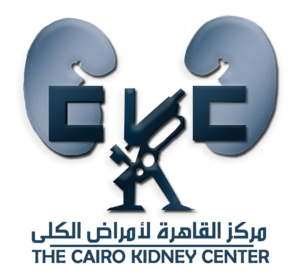Kidney Transplant
The CKC Transplant Program has a distinguished history spanning over two decades, with the inaugural transplant performed on August 6th, 1995. Over the years, nearly 700 transplants have been successfully completed, achieving remarkable outcomes. Patient survival rates over 20 years stand at 78%, with graft survival at 60%, aligning with global benchmarks of excellence.
- Living Related Donors: Accepted within the provisions of Egyptian Law, ensuring donors are family members.
- Unrelated Donors: Require formal approval from the Egyptian Ministry of Health (MOH) after comprehensive evaluation by two Ethics Committees, both at CKC and within the MOH.
Evaluation and Approval Process
- Recipient Evaluation: A thorough assessment of the recipient’s overall health, surgical suitability, and ability to tolerate post-transplant medications to prevent rejection.
- Donor Evaluation: Comprehensive physical assessments, laboratory tests, and imaging studies to ensure compatibility with the recipient’s blood group and tissue type, and to confirm the absence of transmissible diseases. This includes:
- Detailed physical examinations.
- Laboratory tests and imaging studies.
- Compatibility checks for blood group and tissue type.
- Psychiatric evaluations to confirm mental competence and voluntariness, ensuring no coercion.
- MOH Clearance: Upon acceptance of both recipient and donor, the process of obtaining MOH clearance begins. This usually involves:
- Approximately one month for the medical evaluation.
- An additional two weeks for MOH approval.
Surgical and Postoperative Care
- Surgical Excellence: Surgeries are performed in state-of-the-art theaters at CKC headquarters, adhering to international standards for safety and sterility. A multidisciplinary team, including physicians, nurses, assistants, technicians, and administrators, ensures the success of each operation and provides comprehensive in-hospital care and follow-up.
- Post-Operative Education and Follow-Up:
- Patients receive thorough education on treatment protocols, lifestyle adjustments, and medication management.
- Follow-up care involves frequent clinical and laboratory assessments initially, gradually transitioning to less frequent visits over time.
- Donors are monitored for a year post-operation to ensure full recovery and sustained kidney function.
Accreditation and Continuous Improvement
- Accreditation: CKC is accredited by the Egyptian Ministry of Health and recognized as a reputable transplant center by various international organizations.
- Annual Conferences and Research Contributions: CKC holds annual conferences to review outcomes, incorporate international best practices, and refine protocols, ensuring ongoing excellence in transplantation services. The center’s contributions to the field are also showcased through published research, underscoring its leadership in kidney transplantation.

